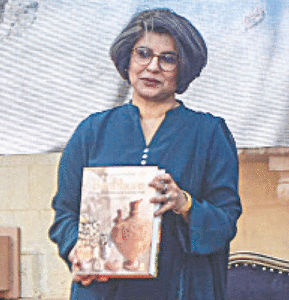KARACHI: While in a move aimed at bringing about gender balance in the police, two of the 113 police stations in the city were recently given under the control of women station house officers, civil society organisations after having consultation with people from different districts of Sindh and legal experts introduced a draft police act on Monday to make the law-enforcement agency a democratic and gender responsive institution.
The confidence and trust of women who make 51 per cent of the country’s population in the police department can be won by simply increasing the representation of women in the police, particularly at the police station level, said a rights activist at the seminar titled ‘Draft Sindh Police Act 201: civil society’s and legislators’ perspective’ held at a hotel.
The programme, organised by the Pakistan Forum on Democratic Policing, an alliance of civil society organisations, was attended by lawmakers and representatives of rights organisations, the judiciary, police and Citizens-Police Liaison Committee.
The 61-page draft, developed under the supervision of retired Justice Nasir Aslam Zahid in close collaboration with the PFDP, was introduced by Akmal Wasim, a professor of law, with the help of slides. He traced the history of police reforms from the Mughal era to the present times and said the time had come that the law-enforcement agency be called police ‘service’ instead of ‘force’, which he said depicted an image of authoritarian rule. Under laws the main responsibility of the police was to ensure general control of the government before and even after partition, but it’s high time that legislation be introduced to depoliticise the police force, making it an autonomous body that’s there to serve the people.
It was unfortunate that at the community level people had never raised their voice for police reforms despite being directly affected by law and order and policing, said police trainer Babar Bashir of Rozan.
He said that employing paramilitary force to maintain law and order in cities on a permanent basis had worsened the situation.
Shehri representative Khateeb Ahmed said the police were there to serve the crown before partition but there was hardly any change witnessed even after Pakistan came into being. He said in the very first line of the preamble to the Constitution of 1973 it was written that “authority to be exercised by the people”, indicating the change that the power centre had shifted from the crown to the people of Pakistan and in that context the police must also have people-centric approach to serve.
CPLC chief Ahmed Chinoy said the draft could be improved by having consultation with lawmakers, the law-enforcement agency and civil society. He said public safety commissions at the district and provincial levels could be introduced. For Karachi, he said, the formation of metropolitan police was the need of the hour. He also compared the disparity in resources being provided to the Rangers and the police, saying it was unjustified to compare the performance of the two law-enforcement agencies.
In a recent survey, he said, it emerged that 14 police stations in the city did not have any lavatory. How one could compare the performance of a police constable, who reached the office to get a weapon, travelled to his place of duty and returned home on his own and was not provided meals by the department, with the one who had all those facilities, he said.
MQM leader Hyder Abbas Rizvi said that the centre should not have the right to post any officer to head the police department. Like other departments, police should also be devolved, he said, adding that there was a need to introduce local policing in Karachi.
He discussed the revenue being generated from and spent on the development of Karachi.
At that point, a woman in the audience reminded him that the discussion was drifting away from police reforms to Karachi-centre politics. In a quick response, he said: “I can’t be governed by you… as I am invited here and I have the right to speak whatever I feel like… either you or I have to leave if we disagree on the subject”. However, he later assured those present in the hall that he would ensure that his party lawmakers worked on the draft police act 2014.
Earlier, Pakistan Tehreek-i-Insaf lawmaker Samar Ali Khan reaffirmed his support for taking up the draft police act in the provincial assembly and also acknowledged the role of civil society in the formulation of laws.
Other police reforms suggested at the programme included induction of people from minority communities in the law-enforcement agency, internal and external accountability system, financial responsibility, human resource and infrastructural support, monitoring and evaluation of targets and performance, changes in training and to make police station as the core of change for the implementation of police reforms.
Regional coordinator of Shirkatgah Mahnaz Rahman, former chairperson of the National Commission on the Status of Women Anis Haroon, journalist Amir Zia, Shabana Arif and others also spoke.













































Dear visitor, the comments section is undergoing an overhaul and will return soon.